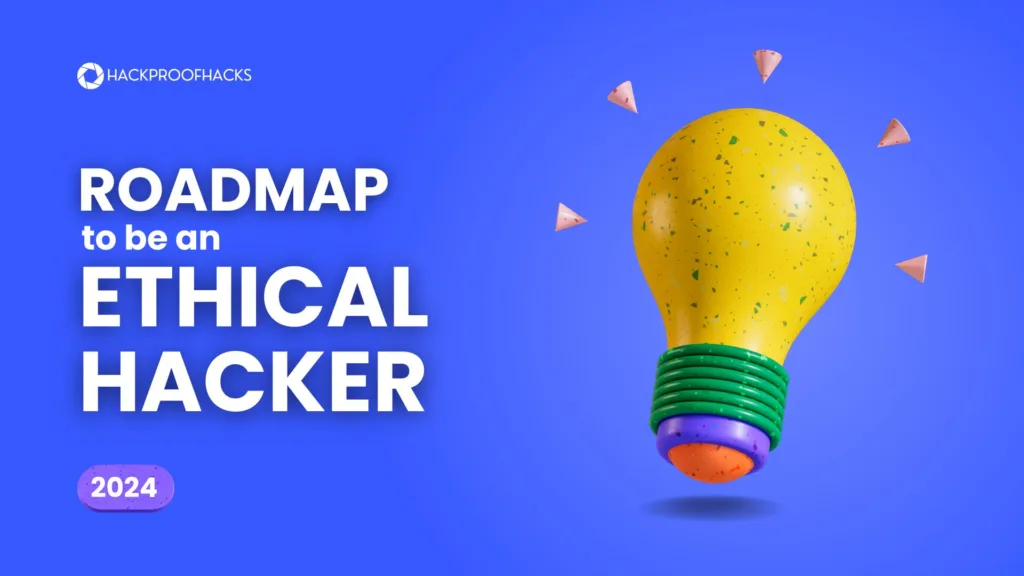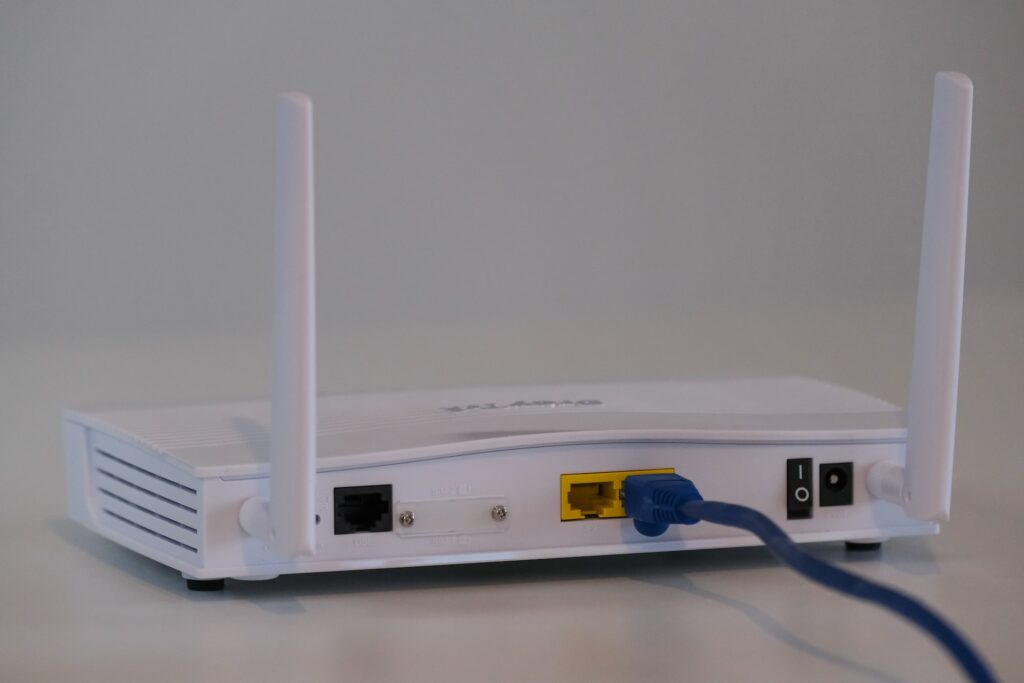
Introduction
Hey there, hackers! If you’re just starting your journey into cybersecurity, you might feel a bit overwhelmed with all the technical details. But don’t worry, I’ve got your back. This guide is packed with free resources to help you become an ethical hacker step by step.
One of the first questions that will pop into your mind is: Is hacking legal? The short answer is YES! However, there are specific conditions you need to follow. You can learn more about it in this article [IS HACKING LEGAL? 7 IMPORTANT QUESTIONS ANSWERED].
I’ll simplify the complex stuff into easy steps and include practical exercises to help you learn.
This comprehensive guide is based on concepts from the ‘Hacking: Magic of the Modern Era (2nd Edition)‘ eBook. You’ll find advanced topics like WiFi hacking, password cracking, RDP cracking, and website hacking. Plus, I’ve included some free resources that are perfect for anyone wanting to become an ethical hacker.
By the end, you’ll have all the knowledge and free resources you need to continue on your path to become an ethical hacker. So, let’s dive in and explore the amazing world of ethical hacking together!
Who Exactly is an Ethical Hacker?
Alright, let’s dive into what it means to become an ethical hacker. An ethical hacker, also called a white-hat hacker, is a cybersecurity expert who uses their skills for good. Unlike black-hat hackers, who break the law, ethical hackers work within legal boundaries to identify and fix vulnerabilities in computer systems, networks, and applications.
Think of ethical hackers as the digital detectives of the cyber world. They use various techniques, tools, and methodologies to assess security and spot weaknesses that malicious actors might exploit. By thinking like a hacker, ethical hackers stay ahead of cyber threats, ensuring systems are secure. If you’re looking to become an ethical hacker, mastering this mindset is key to protecting against attacks.
Importance in Cybersecurity
Why are ethical hackers so important? Well, they’re like digital superheroes! Ethical hackers play a critical role in keeping the online world safe. When you become an ethical hacker, you uncover and fix vulnerabilities in computer systems and networks before cybercriminals can exploit them, preventing data breaches and cyberattacks.
Without these experts, our online environment would be far riskier, leaving us more exposed to hackers and scams. Ethical hackers maintain trust and security in our digital interactions, making them the essential protectors of our online lives. If you want to become an ethical hacker, you’re stepping into a role that keeps the internet safe for everyone.
Are Cybersecurity and Ethical Hacking the same?
Ethical hacking and cybersecurity might seem the same, but they focus on different parts of keeping our digital world safe. When you become an ethical hacker, you use your skills to find and fix security issues in systems, networks, and apps – but only with permission. Ethical hackers look for weaknesses before bad actors can exploit them. They follow strict rules about privacy, honesty, and reporting vulnerabilities the right way.
On the other hand, cybersecurity is like the big picture. It’s about protecting everything in the digital world – data, systems, and even people – from cyber threats. Cybersecurity experts use a mix of technology, rules, training, and quick action to keep things safe and running smoothly.
So, while ethical hackers focus on specific security problems, cybersecurity experts handle the bigger job of planning, managing risks, responding to attacks, and teaching people how to stay safe online. Both roles are super important to keep our digital world secure, and with free resources, anyone can start learning the basics of both fields.
7 Quick Steps to Become an Ethical Hacker

Step 1: Basic IT Skills
Start by learning about computer networks, operating systems like Linux and Windows, and programming languages such as Python, C, and Java. We’ll begin with the basics and progress step by step.
- Understanding Computer Networks: To become an ethical hacker, you need to grasp concepts like IP addressing, subnetting, routing, and network protocols such as TCP/IP, UDP, HTTP, and DNS. There are many free resources available like online courses, textbooks, and networking forums that can help you learn these basics.
- Operating Systems Knowledge: Next, get comfortable with both Linux and Windows operating systems. Learn how to use the command line, manage files and users, configure security settings, and spot common vulnerabilities.
- Programming Languages: Learn programming languages like Python, C, and Java. These are key for writing scripts, automating tasks, and creating security tools. Free resources like online coding platforms and tutorials can make learning easier and faster.
From where to learn Basic IT skills and Python? Below are some of the Free resources:
1. Cisco Networking Basics
2. Linux Journey
3. Windows Command Line
4. Codecademy – Python
Step 2: Networking Essentials
Mastering computer networking is essential for hacking. To become an ethical hacker, you need to understand IP addresses, protocols like TCP/IP and HTTP, and how data travels through networks. It’s like learning the hidden language of the internet!
- Network Protocols and Services: Delve into network protocols and services to understand their functions, vulnerabilities, and security mechanisms. Topics include TCP/IP, UDP, HTTP, FTP, SMTP, DNS, DHCP, and more. Practical lab exercises and network simulation tools can enhance learning in this area.
- Network Security Mechanisms: Explore network security technologies such as firewalls, intrusion detection/prevention systems (IDS/IPS), virtual private networks (VPNs), and secure configurations for routers and switches. Hands-on experience with network security tools and simulations will give you valuable insights as you become an ethical hacker.
From where to learn Computer Networking? Below are some of the Free resources:
1. MIT OpenCourseWare – Computer Networks
2. Google IT Support Professional Certificate
Step 3: Web Technologies and Security
Next, learn about the web. Dive into HTML, CSS, JavaScript, and web vulnerabilities like SQL injection and cross-site scripting (XSS). Get your hands dirty with tools like Burp Suite to find and fix those pesky web vulnerabilities.
- Web Development Basics: Understand web development languages like HTML, CSS, JavaScript, and server-side scripting languages (PHP, ASP.NET). Learn to create, secure, and test web applications.
From where to learn web technologies? Below are some of the Free resources:
1. Mozilla Developer Network (MDN) – Web Docs
- Web Application Vulnerabilities: Explore common web vulnerabilities such as SQL injection, cross-site scripting (XSS), CSRF (Cross-Site Request Forgery), and security testing tools like Burp Suite and OWASP ZAP.
From where to learn web application vulnerability? Below are some of the Free resources:
1. PortSwigger Web Security Academy
2. OWASP WebGoat
Step 4: Cybersecurity Fundamentals
Once you’ve got a handle on web technologies, it’s time to dive into cybersecurity fundamentals to become an ethical hacker. Learn about encryption, authentication, access control, and security models. It’s like building your digital fortress!
- Cryptography: Study cryptographic algorithms, encryption/decryption techniques, digital signatures, cryptographic protocols, and key management.
- Security Concepts: Understand core security concepts including authentication, authorization, access control models (DAC, MAC), least privilege principle, security policies, and risk management.
From where to learn cryptography and security concepts? Below are some of the Free resources:
1. Crypto101 – Introduction to Cryptography
2. Coursera – Cryptography I
3. edX – Introduction to Cyber Security
Step 5: Ethical Hacking Tools
After that, get familiar with essential tools explore Kali Linux, Metasploit, Wireshark, and more. These tools will be your sidekicks in finding and fixing security holes.
- Kali Linux and Tools: Kali Linux is a popular ethical hacking distribution that comes with a wide range of tools such as Nmap for network scanning, Wireshark for packet analysis, Metasploit for penetration testing, John the Ripper for password cracking, Aircrack-ng for wireless security testing, and more.
- Metasploit Framework: The Metasploit Framework is a powerful tool for penetration testing, exploit development, and vulnerability assessment. It allows ethical hackers to simulate cyber attacks and identify weaknesses in systems and networks.
- Wireshark: Wireshark is a network protocol analyzer that enables detailed inspection and analysis of network traffic. It’s useful for troubleshooting network issues, detecting anomalies, and identifying potential security threats.
- Burp Suite: Burp Suite is a comprehensive web application security testing tool. It allows ethical hackers to intercept and modify web traffic, identify vulnerabilities such as XSS and SQL injection, and generate detailed reports.
- Nmap: Nmap is a versatile network scanning tool used for discovering hosts and services on a network. Learn about Nmap’s scanning techniques, scripting capabilities, and use cases for network reconnaissance and vulnerability assessment.
- OWASP ZAP: OWASP ZAP (Zed Attack Proxy) is an open-source web app security scanner. It helps ethical hackers identify and exploit vulnerabilities in web applications, prioritize security issues, and enhance overall web security.
- Nessus: Nessus is a widely used vulnerability scanner that helps identify security vulnerabilities, misconfigurations, and compliance issues in networks and systems. Learn how to configure and use Nessus effectively for vulnerability assessment.
From where to learn ethical hacking tools? Below are some of the Free resources:
1. Kali Linux
2. Cybrary – Kali Linux Training
3. John: The Ripper
4. SQLmap
5. Nmap
6. Metasploit
7. Wireshark
8. Burpsuite
Step 6: Continuous Learning and Practice
It is also the most important part of every hacker’s journey. A hacker needs to stay updated with the latest trends, threats, and best practices. They solve Capture The Flag (CTF) challenges to test and sharpen their skills in real-world scenarios.
- Stay Updated with Cybersecurity Trends: Cybersecurity is a rapidly evolving field. Stay informed about the latest threats, vulnerabilities, attack techniques, and security best practices through industry news, blogs, forums, and professional networks. Now, How can you stay updated? For that the best place is Twitter. Visit the profile of @trickyhash and follow all of his following to stay updated. You can follow this blog too for the latest techniques and vulnerabilities.
- Participate in Capture The Flag (CTF) Challenges: Engage in Capture The Flag (CTF) competitions to apply and enhance your ethical hacking skills in realistic scenarios. CTF challenges simulate real-world cybersecurity incidents and provide hands-on experience.
Step 7: Certifications: Enhancing Your Credentials
Consider getting certified to showcase your expertise. Certified Ethical Hacker (CEH), CompTIA Security+, and Offensive Security Certified Professional (OSCP) are some of the badges of honor in the ethical hacking world.
- Certified Ethical Hacker (CEH): The CEH certification from EC-Council validates your ethical hacking skills, knowledge, and expertise. It covers topics such as footprinting and reconnaissance, scanning networks, enumeration, system hacking, malware threats, sniffing, social engineering, denial-of-service (DoS) attacks, session hijacking, and more.
- CompTIA Security+: The CompTIA Security+ certification demonstrates your foundational knowledge of cybersecurity concepts, tools, and best practices. It covers areas such as risk management, cryptography, network security, identity and access management, and incident response.
- Offensive Security Certified Professional (OSCP): The OSCP certification by Offensive Security is a hands-on and challenging certification that focuses on penetration testing skills. It involves a rigorous exam where candidates must demonstrate their ability to identify, exploit, and mitigate vulnerabilities in a controlled environment.
BONUS
- Recommended Resources: Hacking: Magic of the Modern Era (2nd Edition) eBook – Explore advanced topics like WiFi hacking, password cracking, RDP cracking, website hacking, and more in this comprehensive guide for ethical hackers.
- Practical Sites to Learn Ethical Hacking:
1. TryHackMe
2. Hack The Box
3. PortSwigger Security Labs
4. Penetration Testing Labs by Pentesterlabs - Best YouTube Channels to Learn Hacking:
1. Hassan Ansari | Ethical Hacker (@trickyhash)
2. Hackersploit
3. Null Byte
4. HAK5
5. Bug Bounty Report Explained
6. Nahamsec
7. Tomnomnom
8. Farah Hawa - Recommended Books for Ethical Hacking:
1. Hacking: Magic of the Modern Era (1st Edition) [FREE]
2. Hacking: Magic of the Modern Era (2nd Edition)[Advanced]
3. The Hacker Playbook: Practical Guide To Penetration Testing
4. The Web Application Hacker’s Handbook
5. Hacking: The Art of Exploitation
6. Metasploit: The Penetration Tester’s Guide
7. Social Engineering: The Art of Human Hacking
- Recommended Blogs and Sites for Learning:
1. InfosecWriteup
2. HackerOne
3. Hackproof Hacks
Wrapping up!
Congratulations! You’ve made a fantastic start on your journey to become an ethical hacker. As you continue to explore and practice, remember that with this new knowledge comes great responsibility. It’s crucial to use your skills ethically and always be aware of the impact of your actions.
Keep learning and refining your techniques. The field of cybersecurity is always evolving, so staying curious and up-to-date will help you stay ahead. Embrace the adventure and challenges that come with this path. Remember, being an ethical hacker means working to protect and improve systems, not just breaking into them. Enjoy the process and the thrill of discovering new things in the world of cybersecurity!





I’ve been visiting this site for years, and it never fails to impress me with its fresh perspectives and wealth of knowledge. The attention to detail and commitment to quality is evident. This is a true asset for anyone seeking to learn and grow.